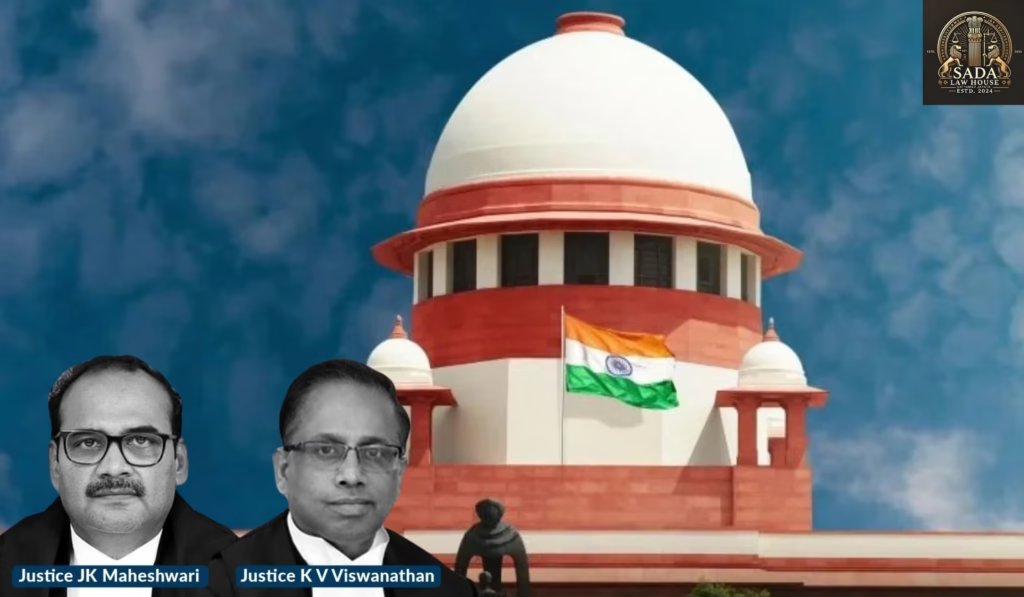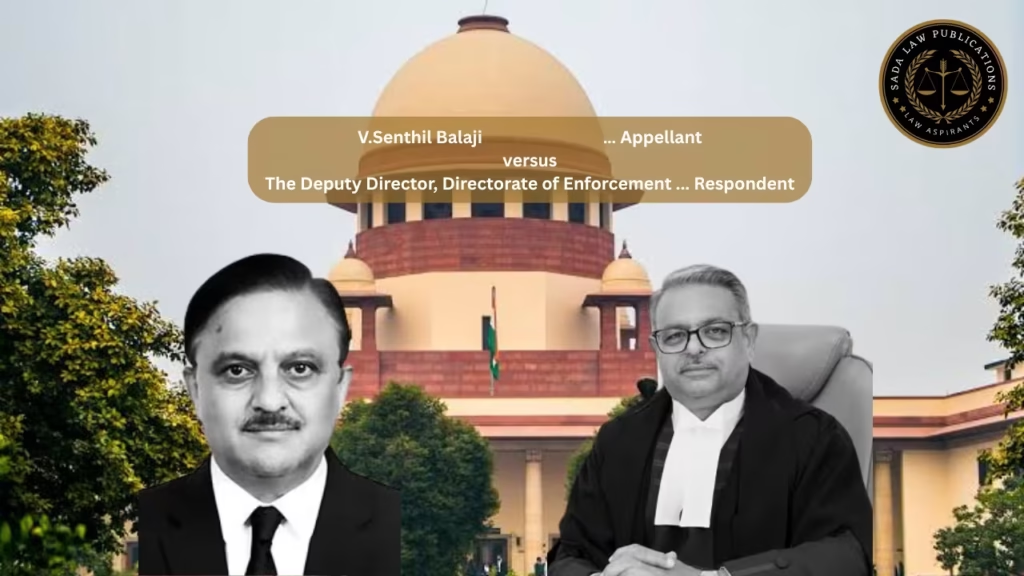Incarceration Due to Trial Delay Violates Article 21: Supreme Court Grants Bail Despite NDPS Act Bar – Ankur Chaudhary v. State of Madhya Pradesh (2024)
Trending Today Incarceration Due to Trial Delay Violates Article 21: Supreme Court Grants Bail Despite NDPS Act Bar – Ankur Chaudhary v. State of Madhya Pradesh (2024) Supreme Court Rules Advocates Not Liable for Deficiency of Services Under Consumer Protection Act – Key Case Analysis Supreme Court Clarifies Appeal Timeline in Juvenile Justice Cases: Key Ruling in Child in Conflict with Law vs State of Karnataka Supreme Court Rules Compensation Cannot Replace Jail Time in Serious Crimes Under CrPC Section 357 BCI Chairman Manan Kumar Mishra Condemns Arrest of Sharmishta Panoli, Demands Immediate Release Over Social Media Controversy Supreme Court Petitioned After Alleged Police Assault on Journalists Reporting on Madhya Pradesh Sand Mafia Supreme Court Rejects Plea Against Assam’s Deportation Policy on Bangladeshi Infiltration Supreme Court Orders Medical Care for Disabled Rape Survivor Under Victim Compensation Scheme LEGAL JOB OPPORTUNITY AT OFFICE OF NUNIWAL LAW CHAMBERS Supreme Court Emphasizes Judicial Hierarchy: Contempt Case Against NCDRC Members in Ireo Grace Realtech vs Sanjay Gopinath (2024) Incarceration Due to Trial Delay Violates Article 21: Supreme Court Grants Bail Despite NDPS Act Bar – Ankur Chaudhary v. State of Madhya Pradesh (2024) REHA BHARGAV 02 June 2025 Supreme Court grants bail to Ankur Chaudhary in a landmark judgment affirming that prolonged pre-trial detention violates Article 21, even under the stringent NDPS Act. Learn how trial delays impact personal liberty and bail rights in drug-related cases. Introduction The Supreme Court’s recent decision in Ankur Chaudhary v. State of Madhya Pradesh highlights the crucial balance between enforcing the Narcotic Drugs and Psychotropic Substances Act (NDPS Act) and protecting fundamental rights under Article 21 of the Indian Constitution. Despite allegations of manufacturing commercial quantities of Alprazolam, the petitioner was granted bail due to excessive trial delay violating his right to personal liberty. Case Facts On April 29, 2022, Ankur Chaudhary was arrested in Indore, Madhya Pradesh, accused of illegally manufacturing approximately 151.8 kilograms of Alprazolam, a controlled psychotropic substance. The prosecution’s case relied mainly on confessional statements from co-accused, while two key witnesses did not support the allegations. Despite the serious charges, Chaudhary remained in custody for over two years without meaningful trial progress. Legal Issue Does prolonged incarceration without trial violate the fundamental right to personal liberty under Article 21, thereby justifying bail even when barred by Section 37 of the NDPS Act? Arguments from the Petitioner The petitioner’s counsel argued that continuous detention without a speedy trial infringes on the constitutional right to liberty. The defense highlighted weak prosecution evidence and stressed the presumption of innocence. They urged bail as justice delayed is justice denied. Arguments from the Respondent The State of Madhya Pradesh emphasized the gravity of the offense under the NDPS Act, pointing to the commercial quantity of narcotics seized. It argued strict bail conditions under Section 37 must be upheld to prevent potential evidence tampering or reoffense. Supreme Court Judgment A Vacation Bench of Justices J.K. Maheshwari and K.V. Viswanathan granted bail, underscoring that the right to a speedy trial is fundamental. The Court observed the trial had not progressed for over two years, making continued detention unconstitutional despite the NDPS Act’s stringent bail provisions. The weakening of prosecution evidence further supported bail, balancing public interest with individual liberty. Conclusion This landmark ruling reinforces that even under stringent drug laws, constitutional protections like Article 21 prevail against undue trial delays. The Supreme Court’s decision in Ankur Chaudhary v. State of Madhya Pradesh sets a vital precedent for safeguarding the right to personal liberty and speedy justice in narcotics cases. Leave a Reply Cancel Reply Logged in as Sada Law. Edit your profile. Log out? Required fields are marked * Message* Case Laws Incarceration Due to Trial Delay Violates Article 21: Supreme Court Grants Bail Despite NDPS Act Bar – Ankur Chaudhary v. State of Madhya Pradesh (2024) Sada Law • June 4, 2025 • Case law • No Comments Supreme Court Rules Advocates Not Liable for Deficiency of Services Under Consumer Protection Act – Key Case Analysis Supreme Court Rules Advocates Not Liable for Deficiency of Services Under Consumer Protection Act – Key Case Analysis Sada Law • June 4, 2025 • Case law • No Comments Supreme Court Clarifies Appeal Timeline in Juvenile Justice Cases: Key Ruling in Child in Conflict with Law vs State of Karnataka Supreme Court Clarifies Appeal Timeline in Juvenile Justice Cases: Key Ruling in Child in Conflict with Law vs State of Karnataka Sada Law • June 4, 2025 • Case law • No Comments 1 2 3 … 5 Next »



